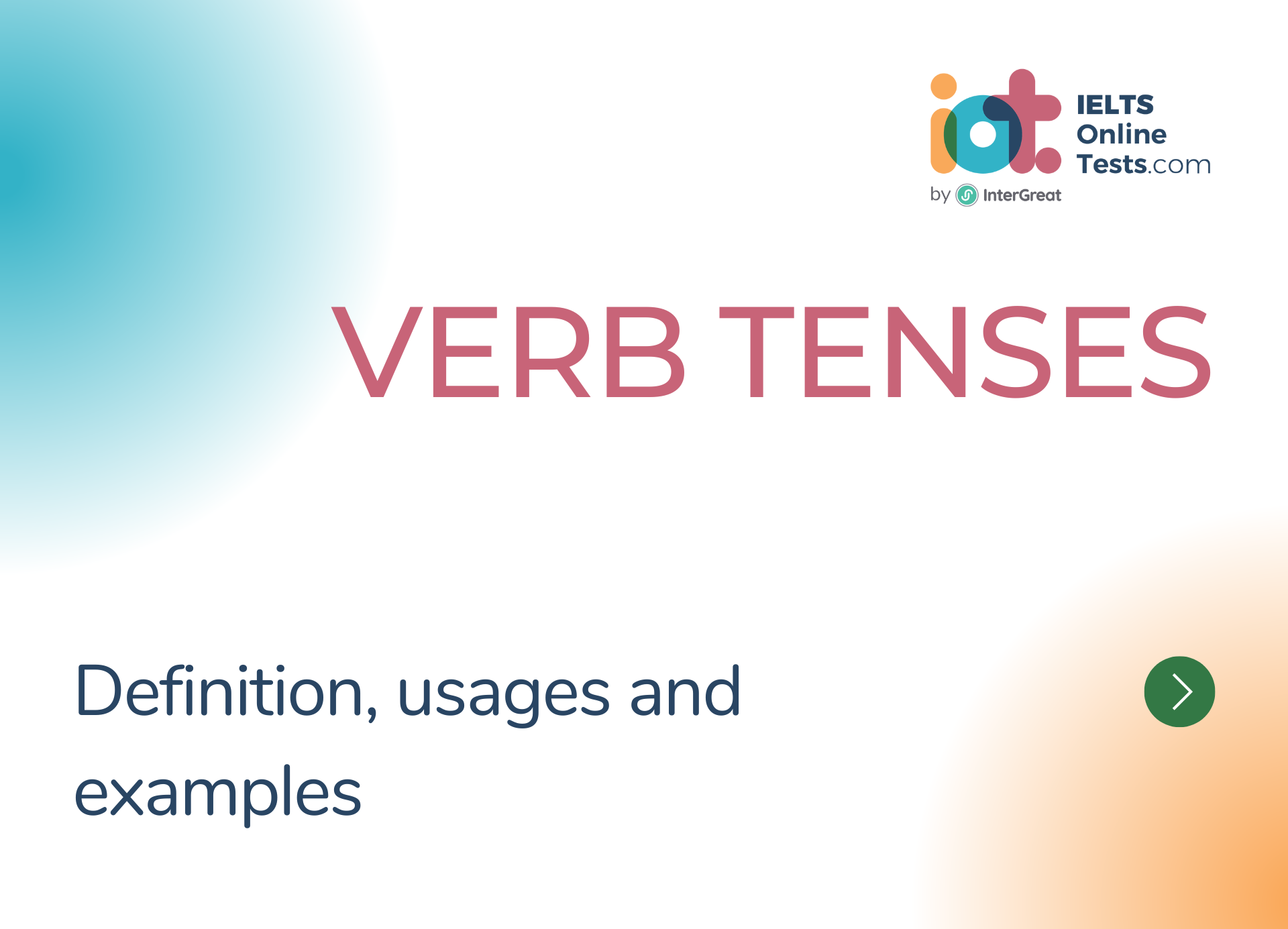
Verb tenses
Verb tenses refer to the different forms a verb can take to indicate the time of an action or event. They play a crucial role in expressing the temporal relationships between actions, states, or conditions in a sentence.
Here's an overview of verb tenses in English, click on each tense to learn more about it:
- Used to express general truths, habits, repeated actions, or permanent situations.
- Example: "She sings beautifully."
- Used to describe ongoing actions happening at the present moment.
- Example: "They are playing soccer."
- Used to indicate completed actions with a connection to the present or experiences that occurred in the past.
- Example: "I have visited that city before."
Present Perfect Continuous Tense:
Used to describe actions or situations that started in the past, continue in the present, and may continue into the future. It emphasizes the duration of an action or event. This tense is formed by using the present perfect of the auxiliary verb "have" (has/have) with been, followed by the present participle (-ing form) of the main verb.
Example: "I have been studying English for two hours." (The action of studying started in the past and is still ongoing in the present.)
- Used to describe actions or events that occurred and ended in the past.
- Example: "He walked to the store yesterday."
- Used to describe ongoing actions that were happening in the past at a specific time.
- Example: "They were studying all night."
- Used to express an action that occurred before another action in the past.
- Example: "She had already left when I arrived."
Past Perfect Continuous Tense:
Used to express actions or situations that were ongoing in the past before another past event occurred. It emphasizes the duration of an action leading up to a specific point in the past. This tense is formed by using the past perfect of the auxiliary verb "have" (had) with been, followed by the present participle (-ing form) of the main verb.
Example: "They had been waiting for hours when the bus finally arrived." (The action of waiting started in the past and continued until the bus arrived.)
- Used to indicate actions or events that will happen in the future.
- Example: "I will call you tomorrow."
- Used to describe ongoing actions that will be happening in the future.
- Example: "They will be traveling next month."
- Used to express an action that will be completed before a specified time or another action in the future.
- Example: "He will have finished his work by then."
Future Perfect Continuous Tense:
Used to describe actions or situations that will continue up until a particular point in the future. It emphasizes the duration of an action that will be ongoing before another future event occurs. This tense is formed by using the future perfect of the auxiliary verb "have" (will have) with been, followed by the present participle (-ing form) of the main verb.
Example: "By next year, I will have been living in this city for ten years." (The action of living in the city will continue until the specified time in the future.)
These are the basic verb tenses in English, but there are also variations and combinations of these tenses to convey more nuanced meanings. Understanding verb tenses helps to convey the timeline of events accurately and express actions or states in the appropriate temporal context.




